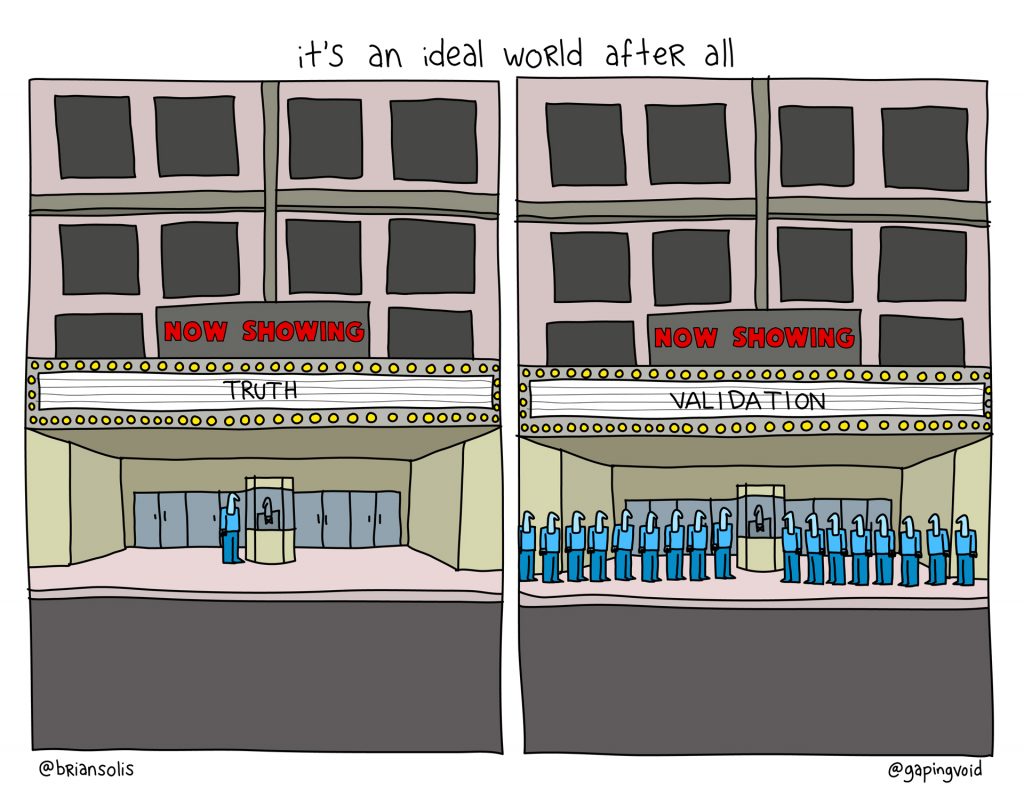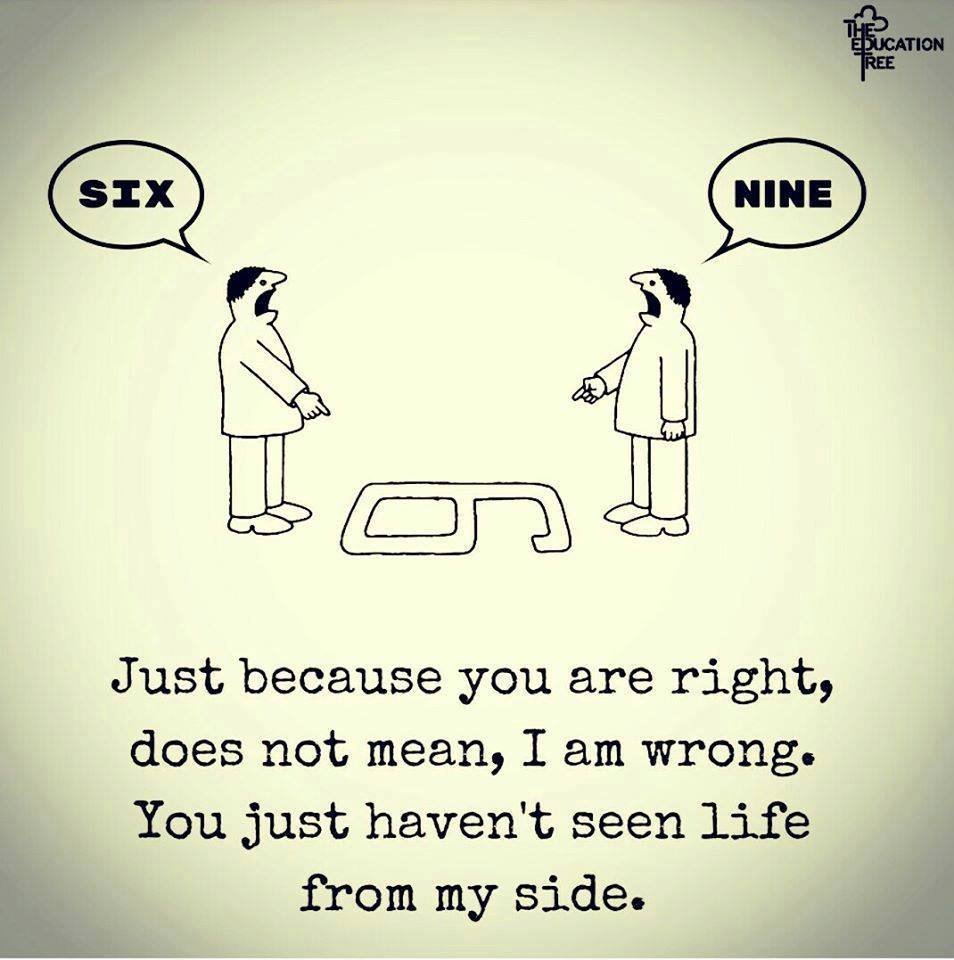
If you and I stood on opposite ends of the number “6” painted on the floor, it’s likely that one of us would see a “6” and the other would see a “9.” As rock legend, and one of my favorite musical idols of all time, Jimi Hendrix once sang, “If 6 were 9.” You could be so sure I see what you see, and I could be certain, you see what I see. It’s all a matter of perspective really. If we switched sides for example, chances are, we would most certainly recognize and appreciate what one another saw.
Sometimes however, we can’t see something, even if it’s right in front of us. Sometimes, we don’t want to see it. And quite often, subconsciously, we believe there’s nothing to see. These finite perspectives unfortunately, work against us. They prevent us from seeing new possibilities that can lead to reflection, learning and growth.

Like the air we breathe, we all share a common set of cognitive biases that insulate us from things that can challenge our core beliefs, preferences and values.
A simple Google search will reveal, that scientifically, cognitive biases aren’t good for us. They close our minds from recognizing the very things that can help us. But the truth is, that our biases are probably protecting us from recognizing that our biases even exist. That’s the problem.
“A cognitive bias is a systematic pattern of deviation from norm or rationality in judgment.” – Source
“…a mistake in reasoning, evaluating, remembering, or other cognitive process, often occurring as a result of holding onto one’s preferences and beliefs regardless of contrary information.”[1]
“Individuals create their own ‘subjective social reality’ from their perception of the input. An individual’s construction of social reality, not the objective input, may dictate their behaviour in the social world.” [2]
“Cognitive biases may sometimes lead to perceptual distortion, inaccurate judgment, illogical interpretation, or what is broadly called irrationality.”[3][4][5]
Somewhere in this disconnect though, is also the solution. I don’t believe that we, at some level, or somewhere deep within, really believe that we have nothing new to see, appreciate or learn. I don’t believe that we really know more than anyone else, because, by some master stroke of mastery, that our life experiences, choices, faith and ideology are perfectly curated, tuned and balanced
We live in a time of great change. We also live in a time when, as time passes, we will see even greater change. Whether we see it or not, or depending on how we choose to see it, the world will still change. It’s a choice to define our place in this world today and as it evolves. And, that choice is ours. Otherwise, that choice is made for us.
When you look through a lens of past experiences and the beliefs that form as a result of those experiences (and previous how previous beliefs shape those experiences), it can be hard to see what’s right in front of you. But you stand at a crossroads. We all do. Once you see things through a lens of possibility and growth, you’ll wonder why you didn’t see it sooner.
If 6 were 9 or 9 were 6, the truth is that it’s both, and perhaps more.
Just because someone is right doesn’t mean the other person is wrong.
I’m learning to see that perspective is a gift.
The future will happen to us or because of us.
I believe it’s the latter.
As in anything, it’s a choice…one you and I have to make, not just today, but every day.
Published in collaboration with GapingVoid
_____
[1] https://www.chegg.com/homework-help/definitions/cognitive-bias-13
[2] Bless, H.; Fiedler, K. & Strack, F. (2004). Social cognition: How individuals construct social reality. Hove and New York: Psychology Press
[3] http://datacolada.org/wp-content/uploads/2014/08/Kahneman-Tversky-1972.pdf
[4] Baron, J. (2007). Thinking and Deciding (4th ed.). New York, NY: Cambridge University Press.
[5] Ariely, Dan (2008). Predictably Irrational: The Hidden Forces That Shape Our Decisions. New York, NY: HarperCollins.
_____
Brian Solis
Brian Solis is principal analyst and futurist at Altimeter, the digital analyst group at Prophet, Brian is world renowned keynote speaker and 7x best-selling author. His latest book, X: Where Business Meets Design, explores the future of brand and customer engagement through experience design.
Please, invite him to speak at your event or bring him in to inspire colleagues and fellow executives/boards.
Connect with Brian!
Twitter: @briansolis
Facebook: TheBrianSolis
LinkedIn: BrianSolis
Instagram: BrianSolis
Youtube: BrianSolisTV
Newsletter: Please Subscribe